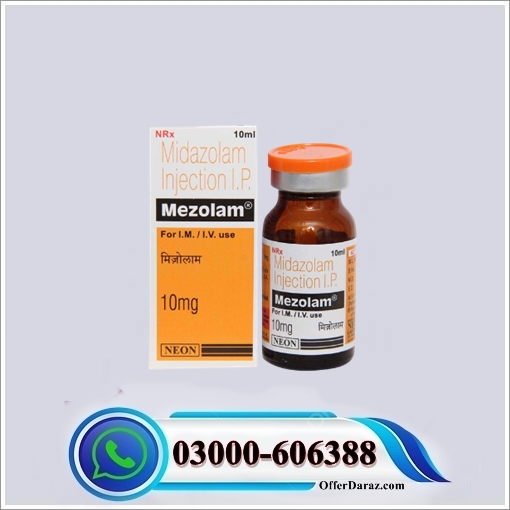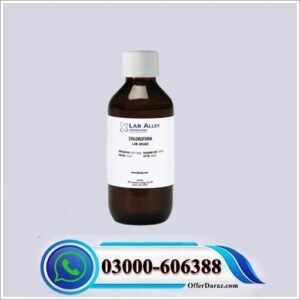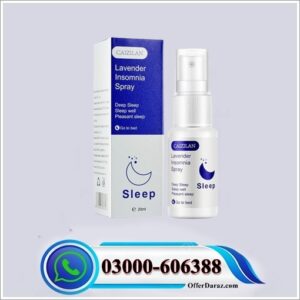Description
Behoshi Ka Injection Name
Behoshi Ka Injection Name is a term commonly used in some regions to refer to a type of drug or medication administered to induce unconsciousness or sedation. The term literally translates to “anesthesia injection” in English. It’s important to note that the specific type of drug used for anesthesia can vary depending on the medical context and the intended purpose. These drugs are typically administered by medical professionals such as anesthesiologists or trained healthcare providers to facilitate painless medical procedures or surgeries. The use of anesthesia injections requires careful monitoring and expertise to ensure the safety and well-being of the patient.
Behoshi Ka Injection Benefits:
The benefits of administering anesthesia injections, or “behoshi ka injection” in certain contexts, include:
- Pain Management: Anesthesia injections can effectively numb the area where they are administered, providing relief from pain during medical procedures or surgeries.
- Facilitates Medical Procedures: Anesthesia injections enable medical professionals to perform procedures that might otherwise be too painful or uncomfortable for the patient to tolerate, thereby allowing for necessary medical interventions.
- Patient Comfort: By inducing unconsciousness or sedation, anesthesia injections help patients remain comfortable and relaxed during procedures, reducing anxiety and fear associated with medical treatments.
- Improved Surgical Outcomes: Anesthesia injections allow surgeons to work more efficiently by keeping the patient still and relaxed, which can contribute to better surgical outcomes and reduce the risk of complications.
- Patient Compliance: For procedures that require the patient to remain still or in a specific position for an extended period, anesthesia injections can improve patient compliance and cooperation.
- Time Efficiency: Anesthesia injections can help shorten the duration of certain procedures by allowing medical professionals to work more quickly and efficiently without interruption due to patient discomfort or movement.
- Psychological Benefits: Being unconscious or sedated during a procedure can alleviate psychological stress and trauma associated with medical interventions, leading to a more positive overall experience for the patient.
Behoshi Ka Injection Side Effects:
While anesthesia injections can provide significant benefits, they also carry the risk of side effects. Some potential side effects of anesthesia injections, or “behoshi ka injection,” may include:
- Nausea and Vomiting: Anesthesia can sometimes cause nausea and vomiting, particularly as the effects wear off.
- Dizziness or Lightheadedness: Patients may experience feelings of dizziness or lightheadedness upon waking up from anesthesia.
- Headache: Some individuals may develop headaches after receiving anesthesia injections.
- Fatigue: Anesthesia can leave patients feeling tired or groggy after waking up from sedation.
- Sore Throat: Anesthesia can cause irritation to the throat, resulting in a sore throat or hoarseness.
- Muscle Aches: Patients may experience muscle soreness or stiffness following anesthesia, especially if they were positioned in an awkward or uncomfortable manner during the procedure.
- Confusion or Disorientation: It’s common for patients to feel confused or disoriented immediately after waking up from anesthesia.
- Allergic Reactions: In rare cases, patients may experience allergic reactions to the anesthesia medications. Which can manifest as skin rashes, itching, or difficulty breathing.
- Respiratory Depression: Anesthesia can depress respiratory function, leading to shallow breathing or difficulty breathing for some patients.
- Cardiovascular Effects: Anesthesia can affect blood pressure and heart rate, potentially causing fluctuations that may require monitoring and management.
Behoshi Ka Injection Uses:
“Behoshi ka injection” is a colloquial term that translates to “anesthesia injection” in English. Anesthesia injections are used for a variety of medical purposes, including:
- Surgical Procedures: Anesthesia injections are commonly used to induce unconsciousness or sedation. During surgical procedures to ensure that patients do not experience pain or discomfort.
- Diagnostic Procedures: Some medical tests or diagnostic procedures, such as endoscopies or certain imaging scans. May require sedation or anesthesia to help patients remain still and relaxed during the examination.
- Dental Procedures: Anesthesia injections are frequently used in dentistry to numb the area around a tooth before dental procedures such as fillings, root canals, or tooth extractions.
- Childbirth: In some cases, anesthesia injections, such as epidurals or spinal blocks. Are used during childbirth to provide pain relief to the mother while allowing her to remain conscious and alert.
- Pain Management: Anesthesia injections may also be used for pain management purposes. Ssuch as nerve blocks or epidural injections for chronic pain conditions.
- Emergency Situations: In emergency medical situations, anesthesia injections may be used to quickly sedate. A patient for procedures or interventions that require immediate attention. Such as resetting a dislocated joint or repairing a traumatic injury.
- Minor Procedures: Anesthesia injections can be used for minor medical procedures performed in outpatient settings. Such as mole removals, skin biopsies, or joint injections.
- Psychiatric Treatment: In some cases, anesthesia injections may be used as part of psychiatric treatment. Such as electroconvulsive therapy (ECT), to induce temporary unconsciousness and prevent discomfort during the procedure.







Reviews
There are no reviews yet.